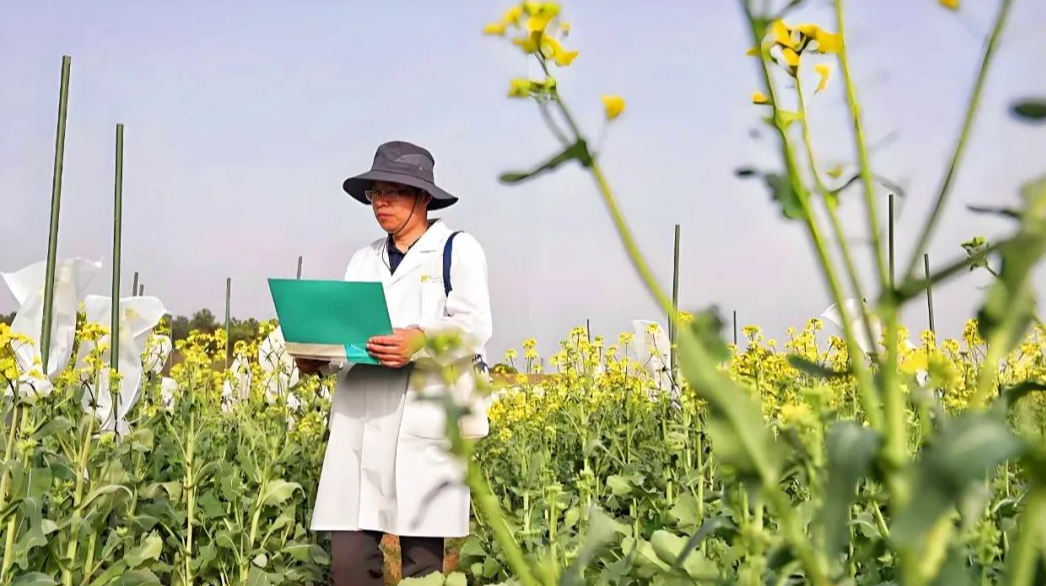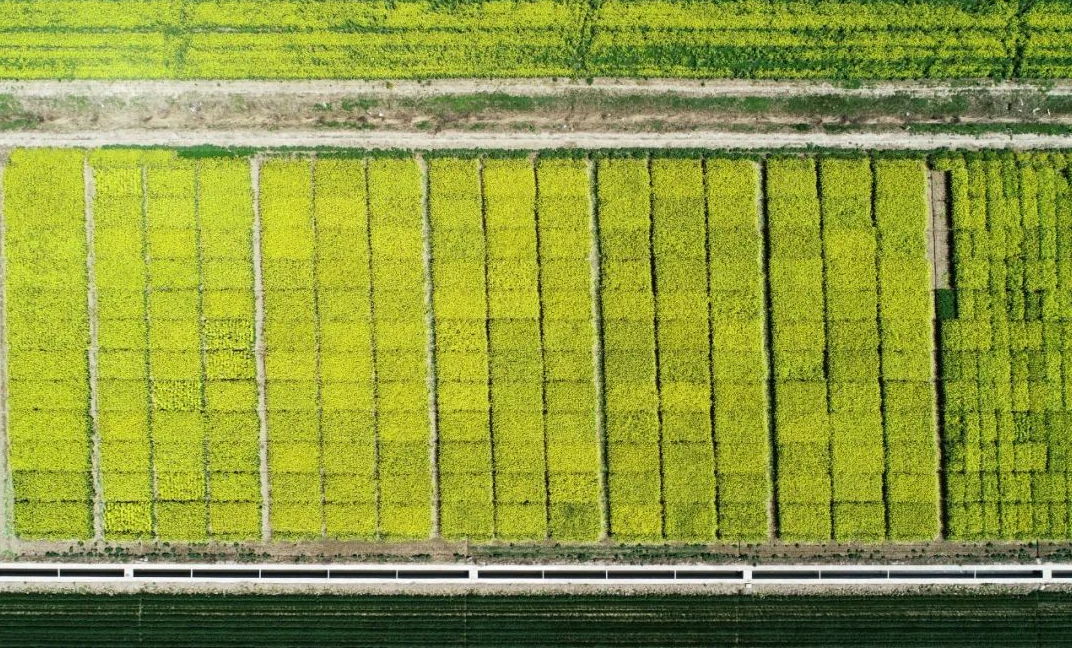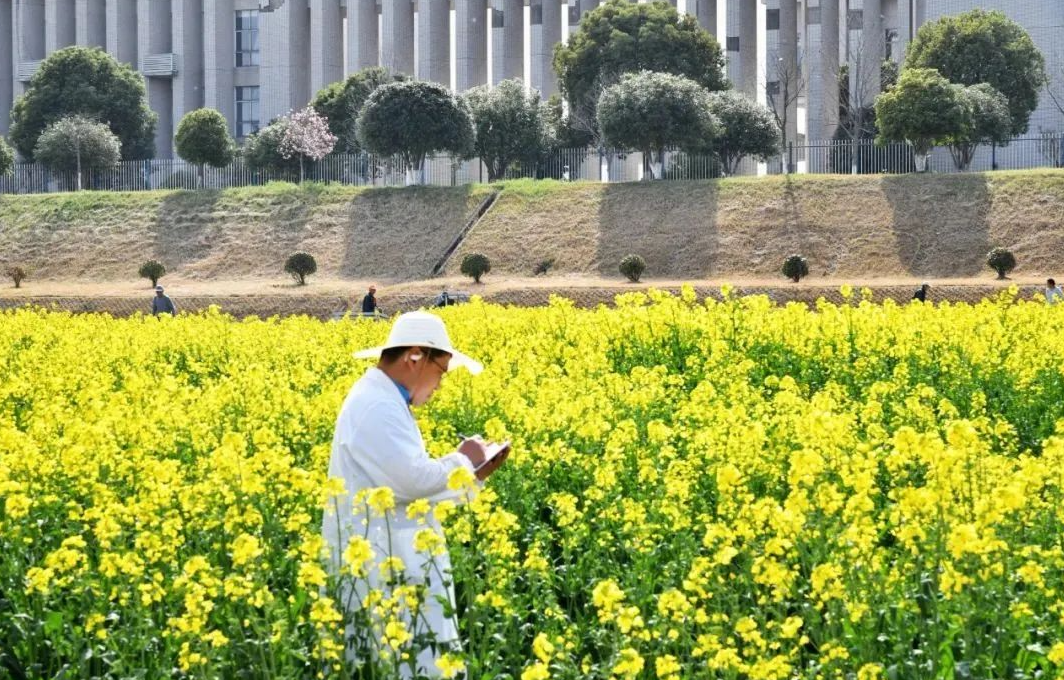 Home of Lishui
Home of Lishui Lishui News
Lishui News Cultural tourism
Cultural tourism
 Investment cooperation
Investment cooperation
 About Lishui
About LishuiCurrent position: English > Cultural tourism > Tourism activities
This year, the Central Document No. 1 has for the first time proposed the development of "new quality productive forces in agriculture suited to local conditions," positioning it as a key pathway for advancing comprehensive rural revitalization. During the blooming season of rapeseed flowers, a recent visit to the Nanjing National Agricultural High-tech Zone explored the agricultural new quality productive forces contained within a single rapeseed seed. This tiny seed encompasses digital technology, artificial intelligence, and biotechnology.
Digital Technology Efficiently “Selects” Excellent Genes to Cultivate New Quality Productive Forces
In the rapeseed experimental fields, tens of thousands of breeding materials are undergoing “gene selection” through digital technology. As a pioneering team in domestic rapeseed breeding, the rapeseed innovation team at the Provincial Academy of Agricultural Sciences has dedicated 16 years to research in Lishui, cultivating over 50 high-quality rapeseed varieties. Among them, the "Ningza 182," included in the national and provincial dominant agricultural varieties, boasts an oil yield rate of 50%, which is 6 percentage points higher than conventional varieties, yielding an increase in production of 10%.
“The ‘Ningza 182’ also achieves ‘dual-use for vegetables and oil.’ When the rapeseed reaches a height of 40-50 centimeters, we can harvest the top 15-20 centimeters, yielding 300 kilograms per acre,” said Zhang Jiefu, chief expert of the rapeseed innovation team at the Provincial Academy of Agricultural Sciences. After harvesting, scientific fertilization does not affect subsequent production and oil yield, and the tender shoots are nutrient-rich, providing direct supply to tables, thus generating dual benefits for the land. Currently, "Ningza 182" has been promoted over 200,000 acres in Jiangsu, Anhui, Zhejiang, and other places, releasing new quality productive forces in agriculture through technological innovation.

In recent years, the Provincial Academy of Agricultural Sciences has actively collaborated with numerous professional cooperatives in Lishui, providing high-quality varieties and technical guidance. At the Honglan Rui's Rice Professional Cooperative, nearly 600 acres of rapeseed are in full bloom, creating a golden sea. Cooperative leader Rui Yusheng stated, “Under the meticulous guidance of the Provincial Academy of Agricultural Sciences, we planted over 300 acres of ‘Ningza 182’ this year, achieving a yield of 400 jin per acre, with an increase of about 100 yuan per acre in benefits.”
“The core of breeding lies in finding the optimal gene combinations, and digital technology acts like a ‘gene navigation system’ for each rapeseed plant,” said Wan Yunlong, deputy director of the Scientific Research Base Management Department at the Provincial Academy of Agricultural Sciences, comparing new and old breeding technologies. In the past, field observations were needed, often taking seven to eight years to breed good varieties. Now, with molecular marker-assisted technology, specific DNA markers can be quickly detected to lock in excellent traits such as disease resistance and high yield.
Decoding the secrets of rapeseed using digital technology. This year, the rapeseed team introduced the “Rapeseed 1K Chip” developed by Huazhi Biotechnology. This biological chip, only the size of a fingernail, is like giving rapeseed a “technology CT scan,” allowing for the simultaneous scanning of a thousand gene loci, achieving a “molecular examination” of breeding materials and injecting innovative genes into new quality productive forces in agriculture.
Artificial Intelligence Empowers “Cloud Breeding” to Activate New Quality Productive Forces

Above the experimental field, a drone equipped with a multispectral camera is cruising and scanning, collecting real-time data on crop height and more. “In the past, we had to endure the blazing sun and manually record crop information one by one,” Zhang Jiefu said. Nowadays, leveraging drones in this intelligent application scenario, we hope to achieve “cloud-based field monitoring” in the future, allowing researchers to complete preliminary screenings of crop traits without having to enter the fields.
A revolution in field management is simultaneously unfolding. In 2021, the Nanjing Agricultural Mechanization Research Institute collaborated with the Provincial Academy of Agricultural Sciences to develop an “Intelligent Field Management Robot” equipped with a high-precision mechanical arm for accurate management of field crops. Zhang Jiefu introduced that the research team is currently upgrading the device's functions and plans to add a weed identification module that can instantly detect mutant plants, achieving fully automated processing through “identification-location-removal” via the mechanical arm.
From high-altitude data perception to precise field operations, artificial intelligence technology is reshaping traditional breeding models. When breeding experts can control variety traits with just a click of a mouse, the traditional breeding landscape of “facing the yellow earth with the back to the sky” is being rewritten by “wisdom at their fingertips.”
Gene Editing Boosts Precision Breeding and Enhances New Quality Productive Forces
Gene editing technology is sparking a new round of breeding revolutions, utilizing “molecular scissors” to precisely trim gene sequences, enabling ideal varieties to swiftly transition from the laboratory to the fields.

In 2004, addressing the lack of herbicide-resistant varieties in rapeseed production in China, the rapeseed team screened five resistant plants from tens of thousands of rapeseed plants. After more than a decade of targeted selection, they ultimately developed China’s first non-GMO herbicide-resistant variety, “Ning R101.” “It was like running a marathon; we had to find the ‘lucky one’ that combines resistance with high yield,” Zhang Jiefu recalled. This variety has now been included in the national dominant variety catalog, achieving “weed control without harming seedlings.”
“Compared to traditional breeding methods, gene editing technology can accurately locate and modify specific gene loci, changing their expression patterns through precise editing, allowing for the rapid acquisition of desirable traits,” Zhang Jiefu explained. Currently, the team is still in the gene mining phase, laying the groundwork for future gene editing breeding.
Looking to the future, gene editing is opening up more possibilities. “Next, we will continue to conquer new technologies, combining high yield and high oil content with herbicide resistance. In response to the root knot disease situation affecting rapeseed in Jiangsu or the upper and middle reaches of the Yangtze River, we are also actively breeding varieties resistant to root knot disease,” said Zhang Jiefu confidently while standing by the experimental field. “We aim to ensure that every seed contains a scientific gene, securing both the ‘oil bottle’ and creating a beautiful landscape.” With the deep integration of digital technology, artificial intelligence, and gene editing, rapeseed breeding is entering a new era of high-quality development.
Copyrigh 2008-2025Nanjing LiShui district people's government